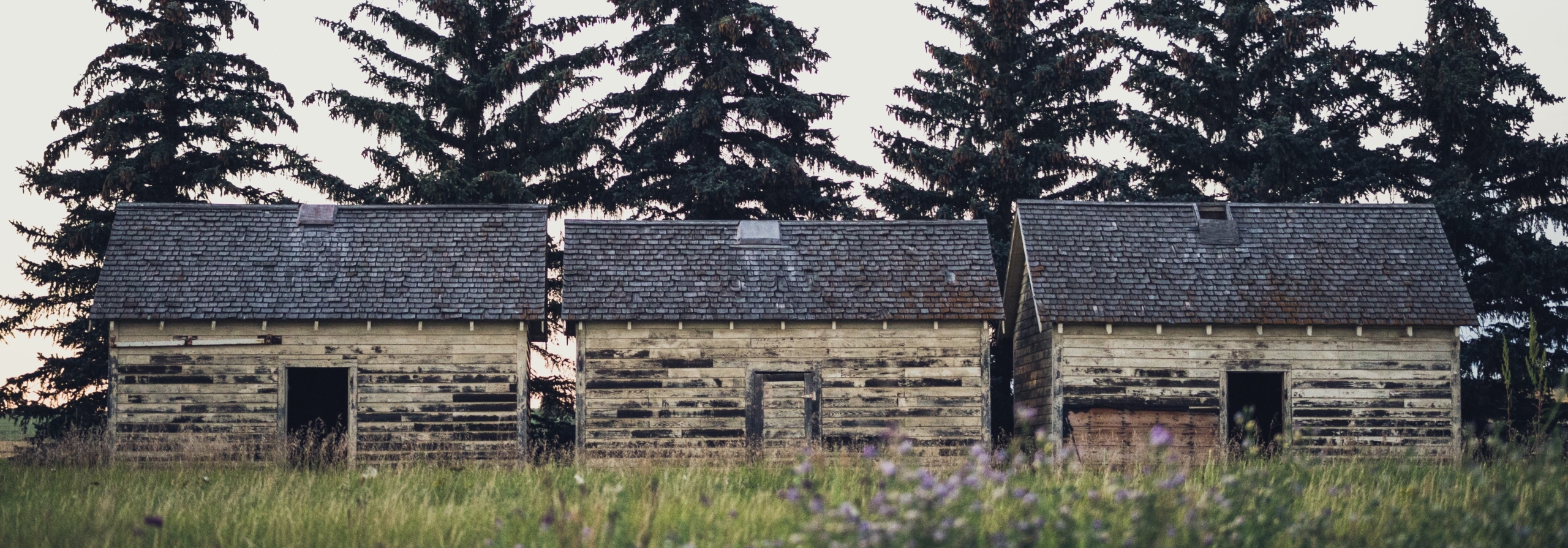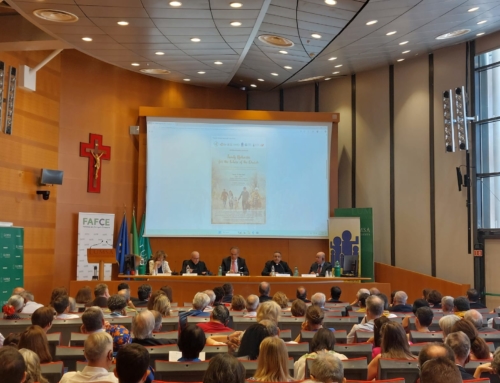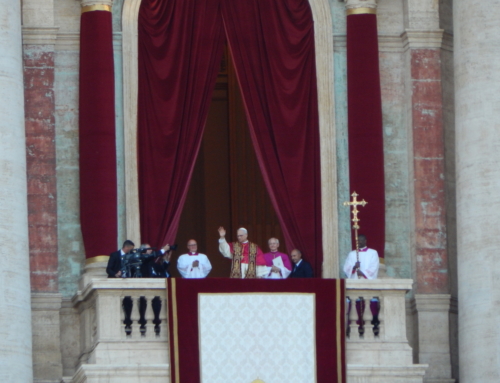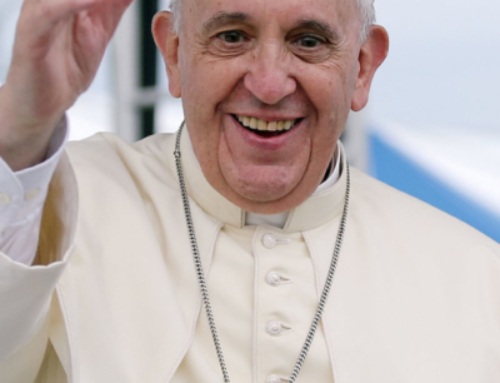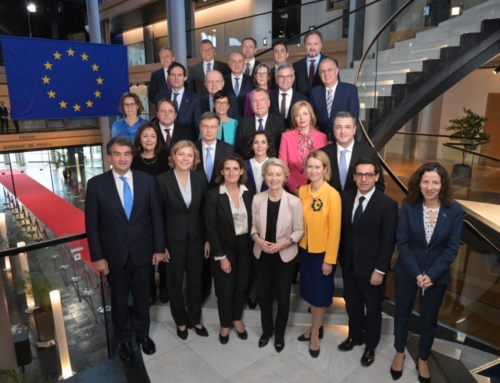Brussels, Madrid; 29 July 2021
Today, the Federation of Catholic Family Associations in Europe (FAFCE) and the Fundación Madrina published a joint reflection paper entitled “Family Associations: The Missing Ingredient in Rural Revitalisation”.
During the presentation of the document, Vincenzo Bassi, the President of FAFCE, underlined that “it is essential to look to reality: the community is a family of families. And the market only arises from the community”. This document presents itself as a “joint reaction of FAFCE and Fundación Madrina” to The Long-Term Vision on Rural Areas in the EU, published by the European Commission on June 30th, a document which attempts to flesh out a strategy to achieve “stronger, connected, resilient and prosperous rural areas by 2040“[1]. Since 2019, for the first time in its history, the European Commission has directly addressed the topic of depopulation in Europe, in the person of Dubravka Šuica, the Vice-President for Democracy and Demography, who is also responsible for coordinating work on the effects of demographic change on connectedness and access to services.
Conrado Giménez, the founder and president of Fundación Madrina, anticipates that the economic and social crisis caused by COVID-19 will last at least half a seven-year economic cycle, based on the fact that “there is a debt crisis with regard to family and business bankruptcies, which has only just begun“. There has also been a “devastation of the self-employed and of businesses without precedent since the Second World War”, causing 26% of families to be at risk of poverty and social vulnerability. He understands that “the crisis has come to stay, as there are no expectations of the generation of employment in cities, where the largest percentage of the population affected by the economic and social crisis of the pandemic resides, due to the fact that there is zero incentive to start companies.” These facts are verified every day, given the constant increase in requests for emergency aid that are made to the Foundation. In this sense, “the only way out for evicted families in large cities and towns is the countryside.” In the rural world, these families and their children will find a “more humane and sustainable habitat”. Likewise, it affirms that “in depopulated rural areas, the presence of children, who fill aging towns with few inhabitants with life, is most valued.“
Josefina Bengoechea, co-author of the reflection document and a Member of the Board of Fundación Madrina and of the organisation New Women for Europe, affirms that “this cooperation with FAFCE is only the beginning of a broader cooperation on the issue of integral human development, the only answer to the sustainable development of our planet”. For this reason, the European Commission’s strategy would have to be developed with “a cross-cutting look at the family and its needs”. Families are the generative forces that make rural areas more liveable”, not merely as a result of the local market, the environment, or nature. Parents, with their children, are therefore “the starting point of any new community capable of creating local institutions and attracting new people.“
Among its most recent projects, Fundación Madrina has developed the Pueblos Madrina program in response to some of the problems that affect families, such as the phenomenon of “family homelessness”, “Child Guarantee”, “maternal and child poverty”, and “energy poverty”, which causes loss of home, evictions, failure in school, and various childhood pathologies, among other direct and collateral problems. These realities were observed while carrying out social support programs for vulnerable families in rural areas. The document presents this PM program as a “good practice”, which could be expanded as a model throughout Europe. In addition, the Foundation, with the aforementioned PM project, strives to achieve energy and food self-sufficiency in the towns of depopulated Spain, generating energy and agri-food cooperatives, as well as the generation of rural employment in a sustainable way.
This concept of “a tailored suit”, which the Madrina Foundation wishes to promote in each rural area of depopulated Spain, is intended to be carried out through the four axes of development contained in the Pueblos Madrina programme, and which correspond to the 4Rs of “repopulation, reforestation, reconstruction and revaluation”. With this, the aim is to develop rural repopulation that is much more humane, accessible, and sustainable over time, and that roots the most vulnerable families in the villages and over time, as it is already doing along the repopulated valleys of Amblés, Ambroz, and La Corneja in Ávila, as well as Cuenca, Toledo and other communities. More than 300 families and 1000 children have been rehoused, and another 700 families in vulnerable situations in large cities are waiting. The document highlights the role of families and family associations in “facing demographic challenges, since they are the first place where this interdependence is revealed and is the true antidote to loneliness.” This document also comes at a historical moment of change in the real estate market, with a growing interest in rural areas throughout Europe. Family associations are presented as “a necessity for the prosperity of every community.” Supporting them in their role would be a solution to addressing the two main factors that cause antagonism and inequalities in development between rural and urban areas, including loneliness and market inefficiencies. The latter, the document concludes, can also be corrected “considering family and demographic policies as an investment and not as a cost.”
What is FAFCE
The Federation of Catholic Family Associations in Europe (FAFCE) is made up of 18 associations, plus 5 observer members and 4 associate organizations, from 17 European countries. Founded in 1997 as a local law association in Strasbourg, it has held participatory status in the Council of Europe since 2001. FAFCE is a member of the Forum of International Catholic NGOs and is also registered in the Transparency Register of the institutions of the European Union . Its General Secretariat is located in Brussels (Belgium).
What is Fundación Madrina
Established in 2000, in Madrid, Spain, it is a member of New Women For Europe and has participated in the drafting of laws in favor of single-parent families in the EU and UN. The mission of the Madrina Foundation is to work for the most vulnerable children and mothers, victims of violence, abandonment, abuse or social inequality. The FM fights against “maternal and child poverty” by welcoming, supporting and empowering the mother, knowing that “behind every child there is a mother”. It supports the Family as the most important company in a country and considers women the CEO of the same. This support is carried out through different areas of action such as food, health, health support, training, employment and entrepreneurship, and reception; and it is realised through programs such as the 24-hour health Call Center, the “maternal-infant” emergency, the Baby Bank, the Mother Program, the SAMI Clinic, the Diamond Entrepreneurship training, the Godmother Towns (Pueblos Madrina), the Godmother Grandparents (Abuelos Madrina), the Godmother Homes (Hogares Madrina), and reception apartments, with the aim of being a centre of reference and excellence in comprehensive support for the most vulnerable children and mothers, especially for families with children of school age and with difficulty in achieving their own social, school, and labour integration. A recipient of various national and international awards, recently the FM has obtained the Certificate of Quality, ISO 9001 and Corporate Social Responsibility.
Please find the PDFs of the document, in English and Spanish, below:
Please find the PDF of the press release, in English and Spanish, below:

